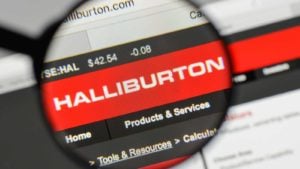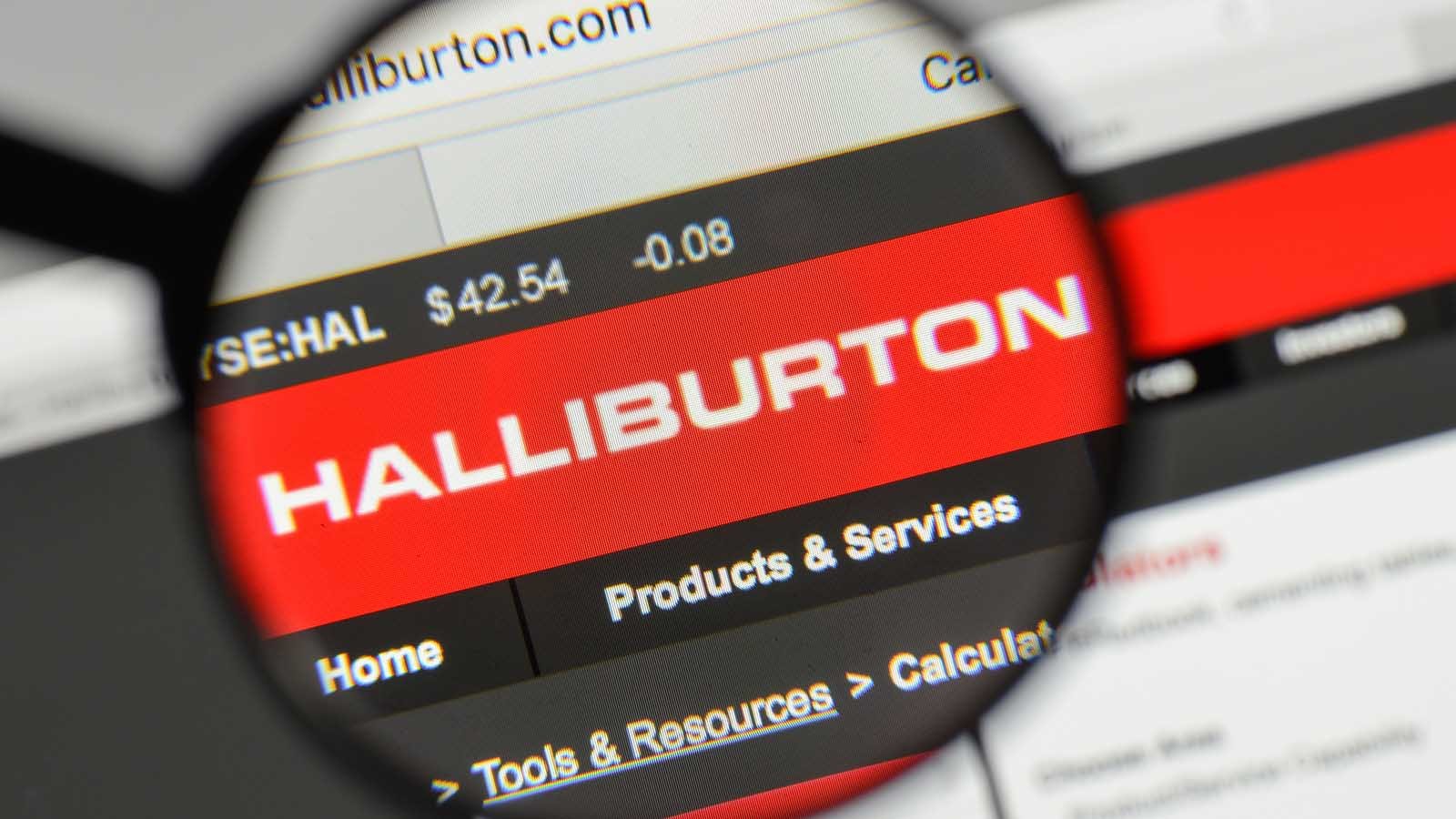When oil services giant Halliburton (NYSE:HAL) reported its first-quarter results on Monday, the share price shot up by about 15% to $7.94. But unfortunately, this was little comfort for longer-term shareholders. Consider that – a year ago – Halliburton stock was at $31 or so.

OK then, so let’s take a look at the quarter. Revenues came in at $5.04 billion (down 12.2% on a year-over-year basis) and the adjusted earnings were 31 cents a share. As for the Street, the consensus was for the top line to be $5.01 billion and profits of 24 cents a share.
But the key for Halliburton stock will be the next couple quarters. Yet the company has withdrawn its fiscal 2020 guidance, as have many other companies.
So here are some of the highlights of the quarter:
- In North America, revenues plunged by 25% to $2.5 billion. But the international segment was more robust, with a 5% increase to $2.6 billion.
- Halliburton was awarded seven contracts for drilling and completion services for an offshore location in northern Australia. The arrangement is for a three-year term.
- The company announced NitroForce, which is a drilling motor that is faster and more reliable for laterals.
- Halliburton secured Pertamina, the largest Indonesian oil and gas company, as a customer for its iEnergy cloud platform.
Even before the outbreak of the COVID-19 pandemic, Halliburton was under pressure, especially in North America. The big issue was the saturation of the shale market. As a result, Halliburton began to cut back on spending in 2019.
But of course, the environment is much harsher now. Oil supplies are at excessive levels and demand has been eroding drastically, which has put incredible pressure on crude prices. On Monday, the May West Texas Intermediate (WTI) contract went negative and then on Tuesday, the June contract dropped by 43% to $11.57 a barrel. These unprecedented moves helped spark a sell-off in the equities markets as well.
Here’s what Halliburton CEO Jeff Miller had to say on the earnings call regarding the situation:
“Activity is in free fall in North America and is slowing down internationally. We cannot predict the duration of the COVID-19 pandemic impact on demand or the pace of any subsequent recovery. At a minimum, we expect the decline in activity to continue through year end. Though we have not experienced anything like the impact of COVID-19 pandemic before, under adverse market conditions, we know what buttons to push and what levers to pull. And we are doing so with swiftness and resolve.”
The Restructuring Moves
In the first quarter, Halliburton engaged in a major refinancing, with the issuance of $1 billion in bonds and the redemption of $1.5 billion in debt. But this will likely not be the end of these efforts.
The company has a focus to continued the reduction of its debt load. Halliburton also has about $5 billion in liquidity, in terms of cash in the bank and credit facilities.
Furthermore, the company will continue to find ways to reduce its cost structure. The plan is to achieve about $1 billion in overhead savings and $800 billion in lower capital expenditures (down 50% on a year-over-year basis). But given the uncertainty in the markets, it would not be surprising that the company will once again revise these plans.
Bottom Line on Halliburton Stock
As one of the world’s largest oil services companies with a massive global footprint and a strong set of intellectual property assets, Halliburton is likely to survive. After all, the company has been around since 1919 and has managed through many tough economic environments.
But for investors looking at Halliburton stock now should be cautious. The brutal fact is that the energy industry is taking swift actions to significantly reduce capital expenditures, like Exxon Mobil (NYSE:XOM), Chevron (NYSE:CVX) and BP (NYSE:BP).
There will also likely be a large number of bankruptcies. In other words, the available spending for Halliburton will be depressed. Even worse, it could easily take a few years until things start to recover. So even though Halliburton stock is certainly cheap right now, it may remain this way for quite some time.
Tom Taulli (@ttaulli) is the author of various books on investing and technology, including Artificial Intelligence Basics, High-Profit IPO Strategies and All About Short Selling. He is also the founder of WebIPO, which was one of the first platforms for public offerings during the 1990s. As of this writing, he did not hold a position in any of the aforementioned securities.
